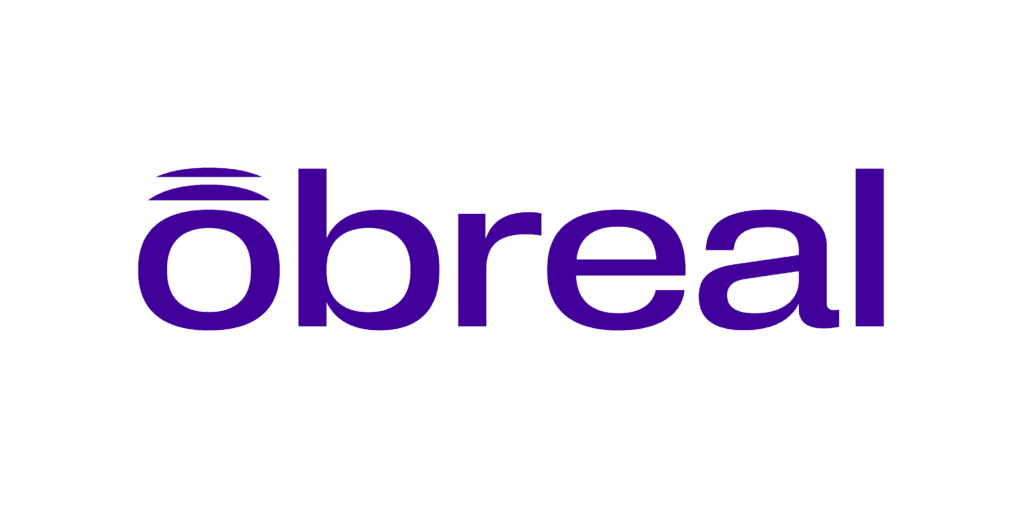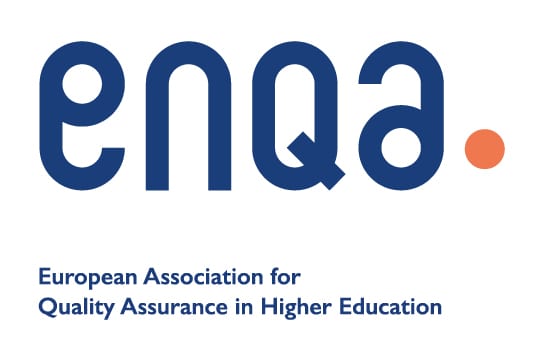General Discussion
- This topic has 56 replies, 23 voices, and was last updated 2 years, 1 month ago by
Isaac Appiah-Darkwah.
-
AuthorPosts
-
December 28, 2023 at 9:07 pm #777
Dear Basiru,
You are right, I was having challenges with the webinar videos but everything is ok now.
Thank you and I appreciate you.
Adewale Olusegun OBADINA
January 1, 2024 at 3:36 pm #779Dear PROFESSOR CUEVAS
After listening to your short informative presentation on problem solving techniques and the two projects that you are currently involved in , I find the need to bring onboard more Universities in Africa. Fresh graduates sometimes miss opportunities due to lack of industrial practice but with such projects that enrich students practical experience (even inclusion in their Curriculum Vitae such experiences) enhance their work readiness and appeal to potential employers. All study programmes should have aspects of experiencial learning where the curriculum is indicative of the requirement for students to undertake problem solving projects
January 4, 2024 at 2:15 pm #781as an educationist, I would begin by asking all our academic staff in the universities (those embracing new technology and those using generic methods) what they require to up their teaching skills in the 21st century. To me, this is a very important question because universities are at different levels hence the teaching faculty. identifying their needs will inform what needs to be done to each category.
As such I agree with Dr. Wangai on having a questionnaire and interview where possible.Alari
January 4, 2024 at 3:27 pm #782I am Olubanke Ogunlana, a Professor of Biochemistry and Quality Assurance Officer at Covenant University, Ota, Nigeria.
The videos are so educative and apt. There is no dispute on the fact that there is a need for a paradigm shift from the traditional teaching and learning methods to a new transformative approach that will equip the learners with broad competencies and local and global problem solving skills.
However, from PROFESSOR CHARMAINE VILLET’s video, she said the new approach is flexible, adaptable, allows for integration of indigenous knowledge, alternative worldviews………….., how can this be possible with the way the African Higher Educational Institutions (AHEIs) are so regulated and AHEIs don’t have full control over their curriculum content. The curriculum content, duration of delivery and other factors are regulated. This new approach is a must for the Africa we want. However, it should not be left alone to the management of the AHEI’s, must of the institutions are struggling as there is there is little or no governmental support for them, most especially the privately owned ones.
Below are my questions
1. Who should constitute and drive the policy to bring about these transformative changes we desire?
2. Who should fund the trainings for the desired changes in the teaching models?
3. What timeline do we give for all these to happen to deliver on the Africa we want?
4. What are the specific and collective roles of the different stakeholders (the government, national regulators, management of AHEIs, lecturers, students, parents, employers and others)Thank you.
January 4, 2024 at 5:07 pm #783Hello Olubanke Ogunlana,
Thank you for your thought provoking questions.However, I wish you also attempted to answer the questions raised in a bid to kick start an interested debate.
Nevertheless, I will attempt to answer your questions as follows:
1.Who should constitute and drive the policy to bring about these transformative changes we desire?
I believe several stakeholders like AUC, AAU, donors, AHEIs (including lecturers, general staff and students), civil society,etc. should take part in the policy formulation and implementation.
2. Who should fund the trainings for the desired changes in the teaching models?
Governments, AHEIs and Quality Assurance bodies (Internal and external), international partners, researchers, training organisations are key contributors.
3. What timeline do we give for all these to happen to deliver on the Africa we want?
The timeline should be linked to the Continental Education Strategy for Africa/Science Technology & Innovation Strategy for Africa 2034.
4. A strategic plan needs to be developed to determine the various roles and responsibilities of stakeholders.Warmest regards.
Basiru Mbenga
January 5, 2024 at 11:20 am #785Olubanke Ogunlana
The desired transformational change is possible with all hands on deck.
I propose that the regional/national/institutional quality assurance agencies/directorates/units should be strengthened to develop the policy, the monitoring instruments and drive the change.
Warm regards to all.
January 9, 2024 at 12:09 am #788Wail Benjelloun
The three presentations and the related documents are relevant well beyond the continent and really pose fundamental issues challenging all HE. The professors (and discussants) rightly point to the heterogeneity of African teaching methodologies (or absence thereof) but concur that African students must be encouraged to innovate and to become actors in their own learning experience. In this regard, I am tempted to recall the influence (positive, for once) of Internet, which stripped faculty of their near godly status as sole sources of knowledge in the classroom, and the effect of Covid on students who grew so tired of watching the backs of their teachers talking to the whiteboard or reading power-points on screen (I agree, Ramon), that they launched their own study groups and essentially took the learning process into their own hands.January 11, 2024 at 3:23 am #790Good day, all, Mercy Ezeala here.
Forgive my wordiness and use of an anecdote!
I often considered the touted changes or need for changes in African curricula/teaching-learning practice mere rhetoric swallowed in abstraction, without concretization. However, when I devoted myself to ‘seek and search out by wisdom'(Ecclesiastes 1:13) ways of enlivening interactions with the students, motivating them to learn and develop positive attitudes toward their learning, and being a better me, I decided to employ some of the student-centered strategies such as video-based and small group learning in a group I taught last year(246 students in a class). I made a list of topics and activities relating to the course content and trending topics in society and their program, grouped the students into between 4 and 15 and requested they submit their responses as videos. Each group had to comment on what it found challenging and means of improvement. These videos were shared to the class who commented on the submissions. One group provided misleading responses to their questions. I raised up questions in the discussion forum for the group and other students to understand the fallacious conclusions.
Now, this might seem an aimless story but I want to use it to respond to some of the questions raised by Prof. Oyewole. I had to engage in studying how best to make the teacher-student encounters relevant at an affordable rate and a continuous learning process to meet up with my internet savvy Gen Z students. Therefore, the change in Africa HE begins with me – the teacher, the participant in a training program like this, and one willing to continually engage in learning -.January 11, 2024 at 10:34 am #791My names are Joseph Daka from Zambia. I have taken some time to listen to videos and some of the posts by the various participants. Also being an Africa myself and taught in the typical African fashion, i can relate with the responses proposed as speaking to my situation. The questions posed by our colleague Olubank Ogunlana positions intervention from an external perspective. Thanks for Mercy Mercy another participant who looked to me(us) as being the immediate intervention.
The shift of teaching and learning has been driven by western theoretical perspectives on pedagogy. The prominent teacher centred approach stifles innovation mindset which favours discovery or experiential learning which is informed by student centred approach. The drive to train masses favours the former approach and the drive to foster the latter require specific investment for teaching and learning of few numbers. Each region should map their transformation, leverage on common related examples from others, raise champions for the course, support them and build progressively.
I am of the opinion that with the innovation of technology as a result of digitalization may in one way improve the quality of the educational system and the emergency of new introduction as in AI, the needs for proper alignment and integration of the processes to be accommodated in the Africa Universities Education system is crucial most especially situation whereby majority of the Africa Universities still struggled and faced with some challenges due to financial capacity will warrant proper strategical framework to help in implementation to achieve the desire goals.
I have been able to listen to all the presentation but what strike me most is Prof Oyewole question 3 on What new approach is being proposed to teaching and learning in Africa? And having listen to the presenter answered on it tends to agreed that shifting from the passive form of teaching and learning alone but blinding it with active form where the lecturer as the sole facilitator and focus allows the integration of the students active development process which create an innovative mind will effectively create the best approach that promote student development which ensure students opportunity to analyze the problems and provide solution.
January 14, 2024 at 3:18 pm #794Regarding Prof Olusola’s first question, “what is the current approach to teaching and learning?”
From my side, the current approach is still based on the traditional classroom where teachers are still regarded to be the sole providers of knowledge and their presence is a must. That model does not encourage autonomous learning nor does it encourage self- discovery and critical thinking. There is little interaction between students and less collaboration between colleagues and with the private sector.
It is still mono-disciplinary based on the accumulation of credits and is less oriented toward competence and transversal skills building. Therefore, our graduates have less employment opportunities because of the mismatch between the taught curriculum and the competences and skills required in the job market. In addition, the current approach places teachers at the center of knowledge creation and sharing. Consequently, learners are not actively involved in the learning process and are not co-creators of knowledge. Our universities reflect the passive reception of knowledge molded on what Paulo Freire calls “the banking conception of education” which not only maintains the submersion of the learners’ consciousness, but it also stifles the learner’s creative power and reduces him to a mere recipient and consumer of knowledge. Consequently our current educational system does not foster critical thinking and creativity which are necessary to address the many challenges that beset our country and many African countries as well.
Fatoumata Keita, University of Arts and Human Sciences of Bamako
ParticipantJanuary 14, 2024 at 3:28 pm #795I totally agree with the presenters about the shift from passive reception of knowledge to active learning process and the introduction of technologically-driven pedagogy. I also agree with the fact that teachers should focus more on the motivation and needs of the learners. I would like to add that the new approach should also foster the motivation of the teachers, particularly in public HEIs which are underfunded and ill-equipped. One of the best ways to motivate teachers is to support research, equip universities with the new technological tools, train teachers to shift to digital classrooms, promote quality education and create a harmonious, merit-based environnement.
-
AuthorPosts
- The topic ‘General Discussion’ is closed to new replies.






